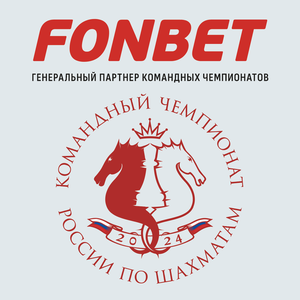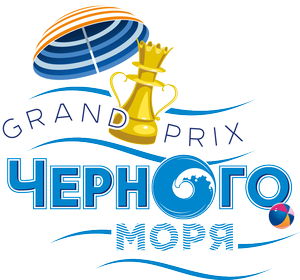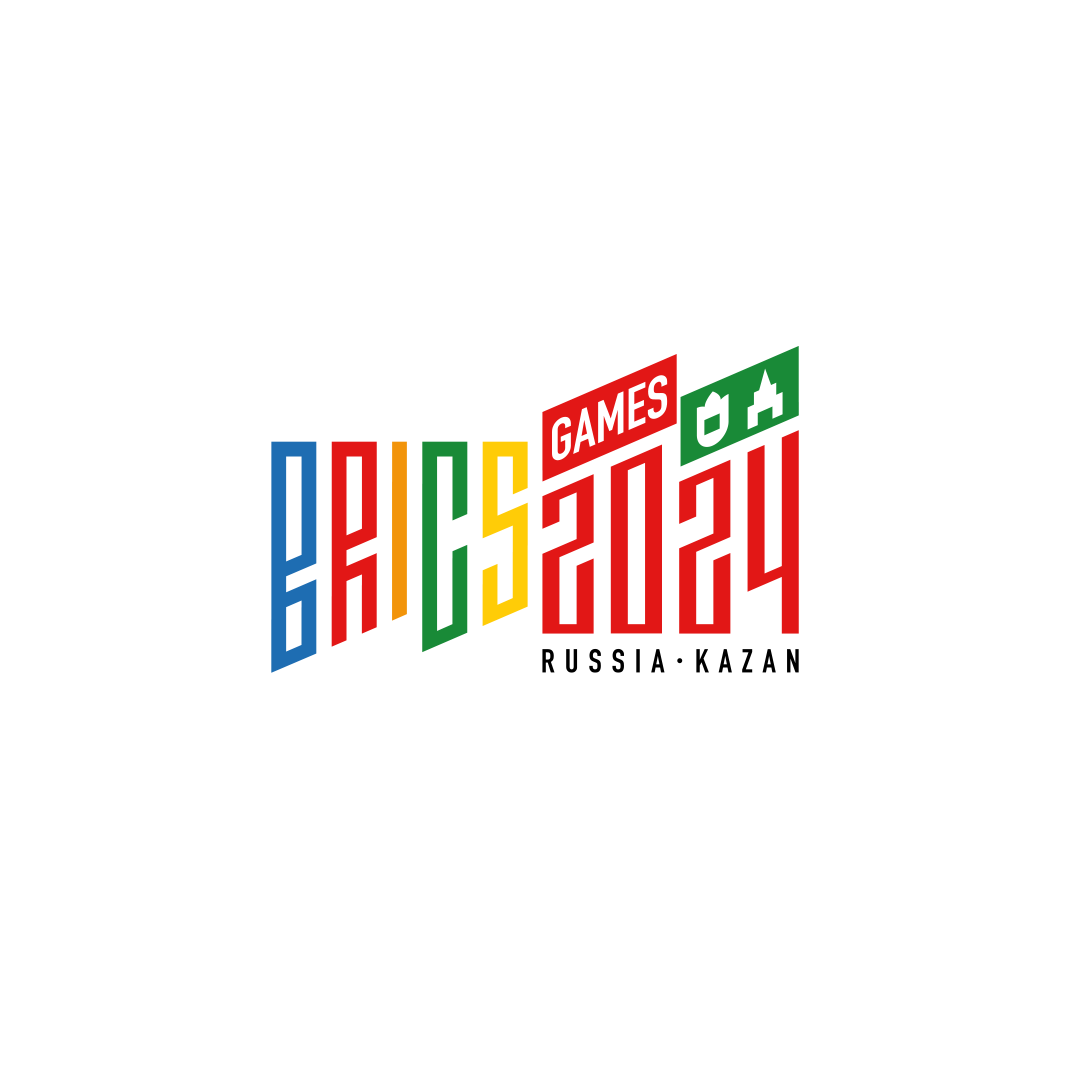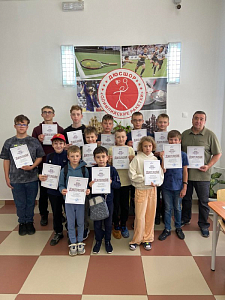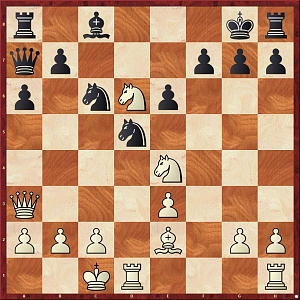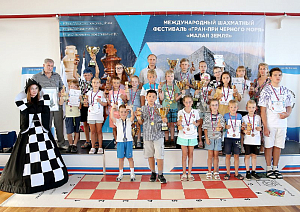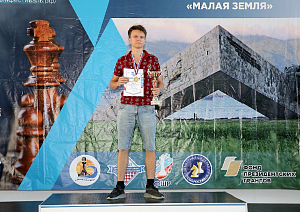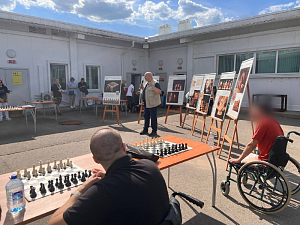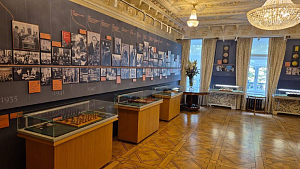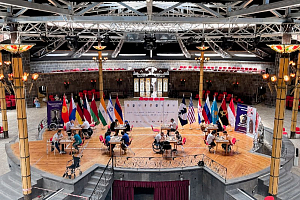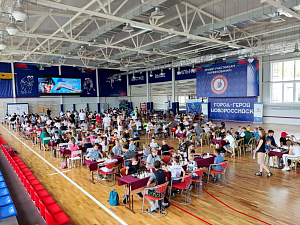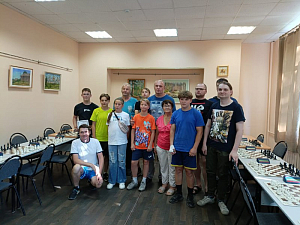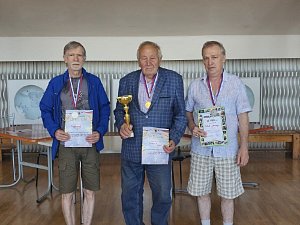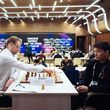Big Money and Passions of Hamlet
Dmitry Kryakvin goes back to the history of the legendary Aeroflot Open
The end of 2023 gave chess players the happy and long-awaited news - the Chess Federation of Russia with the support of Aeroflot was reviving the Aeroflot Open, to be held in the luxurious capital hotel The Carlton, Moscow!
What is Aeroflot? It has gone down in history as one of the most grandiose open tournaments in the world. Aeroflot has seen Magnus Carlsen, Ian Nepomniachtchi, Fabiano Caruana, Sergey Karjakin, Maxime Vachier-Lagrave and dozens of other famous grandmasters take their first steps into the elite. Aeroflot has always brought to the limelight the stars of various caliber. Still, many others, even if not such top grandmasters, earned their first millions here!
"Aero" is known to have created dozens of new chess families, and old acquaintances from all over the world gathered here year after year. Not for nothing was Aeroflot for many years called a meeting place that cannot be changed!
While we are rejoicing with all our hearts at this wonderful festival, now in its 19th edition, it is impossible not to remember the Aeroflot battles of the past!
After all, the first one took place 22 years ago, and that was a very different time. Now let's get the ball rolling!
Welcome to Russia of the year 2002!
Even seasoned tournament veterans were amazed and surprised by the first news of the festival. Aeroflot's record prize pool was $150,000,000 – more than the famous and most important New York Open tournament at the time! Thus, 370 chess players from 34 countries, including 95 grandmasters, came to Moscow in the winter. The festival consisted of "A", "B" and "C" tournaments with a division by rating – grandmasters, masters and amateurs fought for prizes in their groups.
An attractive move from the organizers was the "Aeroflot" package, which included tickets of one of the largest airlines from the most different points of the earth and back, as well as accommodation in the monumental hotel "Russia".
The hotel was built in 1964-1967 by the famous architect Dmitry Chechulin in the very center of the capital city. The Rossiya Hotel had three thousand rooms to accommodate about 5,300 people. In the early 1970s, the hotel complex went down into the Guinness Book of Records as the largest in the world. Indeed, to walk around just one floor of "Rossiya" was not a matter of five or ten minutes!
However, in troubled times the hotel and the huge territory on which it was located gave rise to a criminal and behind-the-scenes struggle: murders and change of directors, competitive tenders and lawsuits... The "Russiya" hotel was closed January 1, 2006, and then demolished in 2010. But for a few years, its last years, it turned into a real home for chess players.
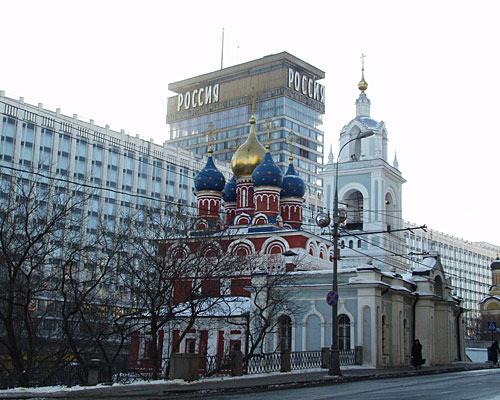
The Association of Chess Federations, headed by Alexander Bakh, assisted foreigners with visas, organized transfers from/to the airport. Bakh would engage in endless negotiations with foreign delegations to find ideal dates without overlapping with other competitions. He urged everyone to participate in his tournament.
Of course, many agreed to participate. Thus, Americans would come to Moscow with board and lodging, flight and tournament fee for 600 units of currency, and European and Asian players – for 500. Even with the current exchange rate, this amount looks quite attractive.
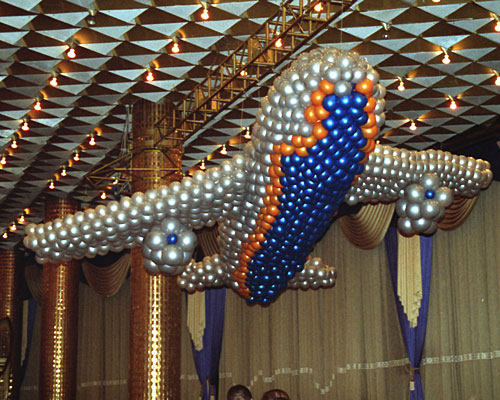
On the other hand, the tournament was held to an experimental, one could say revolutionary, formula with paired rounds per day, which was an unusual burden for many. In fact, the format of paired rounds in adult tournaments has been established in Russia only in recent years. At that time it was given a rather cold shoulder.
The most interesting participant in the main tournament was 12-year-old Sergey Karjakin, who showed a maturity beyond his years. The jury, headed by grandmaster Evgeny Bareev, awarded prizes for the best games. The main prize went to the veteran Evgeni Vasiukov (1933-2018) for his victory over Loek Van Wely, one of the rating favorites.
Vasiukov – Van Wely

On top of the already sacrificed minor piece, Vasiukov gives up his rook!
25.gf K:h7 26.Qg5!
26.Rh1+ Kg6 27.fg was also a winner, but the legendary player wanted the juiciest moves only.
26...Rc7 27.N:e6
Ignoring the trivial 27.Rh1+ Kg8 28.Qh5.
27...Rac8
The Dutch player opts for defending his rook (27...Q:c3 28.N:c7).
28.f:g7 Kg8 29.Rh1 B:e4
29...Kf7 was of no help – 30.g8Q+ R:g8 31.Rh7+, and White wins.
30.Rh8+ Kf7 31.N:c7
31.g8Q+ wins faster.
31...Q:c3 32.g8Q+, and the future senator of Netherlands stopped the clock.
The competition was so close and intense that the first place was shared by five chess players: 1. Grigory Kaidanov (USA), 2. Alexander Grischuk (Russia), 3. Aleksej Aleksandrov (Belarus), 4. Alexander Shabalov (USA) and 5. Vadim Milov (Switzerland) – 6.5 out of 9. However, in the first tournament the winner did not receive any additional super prize, and those who fell behind by additional tiebreakers had less to lose.

Tournament B had chess players with Elo ratings from 2450 to 2151 – the legendary Belarusian GM Viktor Kupreichik (1949-2017) came in first.
2003. A Сan of Pepsi and a trip to Dortmund
The festival continued to develop, and the Aeroflot winner was now entitled to a ticket to the super tournament in Dortmund! In addition to the title sponsor, Pepsi-Cola and Hewlett Packard had also joined to invest in the tournament. 175 bottles of Coke and Pepsi were loaded into 5 refrigerators installed in the hall at the very beginning of the game day. Well, it only took a few minutes after the round started for all the fridges to be emptied!
The first prize in the main tournament was $25,000, and the players were hosted in the Golden Hall of the Rossiya Hotel, one of the most prestigious in Moscow and with magnificent history under its belt at that. It witnessed congresses of party bosses, corporate parties of the first in Russian history reality show "Behind the Glass" and gatherings of the criminal elite of the 1990s.
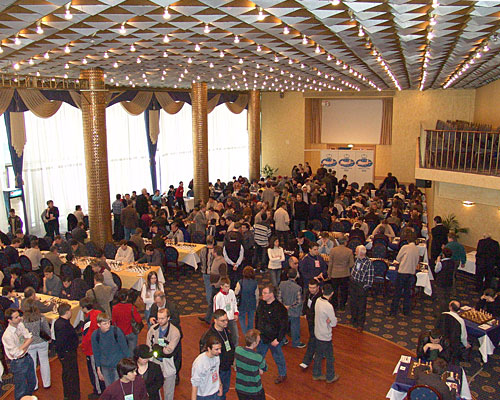
The toilets were equipped with photocells placed near the sinks – which at that time was something borrowed from the XXI st century! All you had to do was put your hands out to the faucet and the water would start flowing all by itself. Meanwhile, in a typical provincial hotel of the time, finding an electrical outlet near the ceiling or a toilet somewhere on the floor was nothing out of the ordinary.
This tournament listed up to 150 GMs. The ticket to Dortmund attracted a number of elite grandmasters. The paired rounds was now in the past and the tournament distance lasted 9 days.
It is interesting to note that there were no rules against cheating or banning the use of telephones in those romantic years. For example, one of the winners, Peter Svidler, said with a sad smile that it would be a good idea to put up a poster saying in big red letters "If your phone ever rings during the game, you are to be fined 1000 rubles! (not such a small amount of money by the standards of 2003).
The tournament was refereed by the legendary Geurt Gijssen, who made a name for himself during the matches between Garry Kasparov (recognized as a foreign agent by the Russian Ministry of Justice)and Anatoly Karpov, and for many years was a kind of model arbiter of Aeroflot. Wearing branded uniforms with Aeroflot patches, the arbiters looked like real pilots! In the future, they would give way to the famous green sleeveless jackets. They were less stylish, but much more practical.
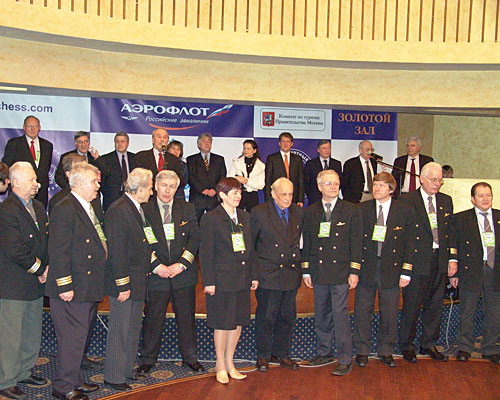
"Aeroflot Open" became not only an amazing tournament, but also a unique school of refereeing and organization of world-class competitions for both Soviet and the younger generation of arbiters. In communication with Gijssen, Ashot Vardapetyan and Andrzej Filipowicz, Russia has got its own top-class arbiters!
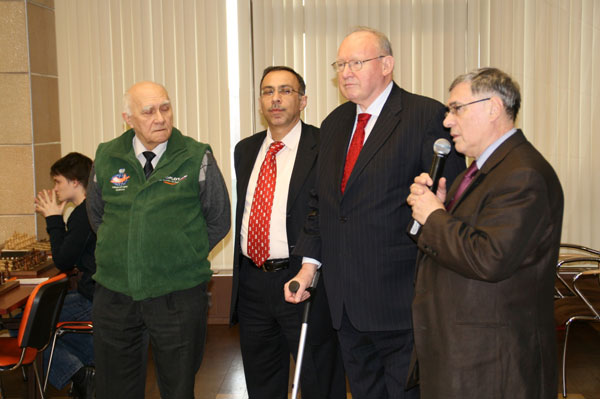
It caused great excitement and attracted many mass media. During one of the rounds the elite grandmasters, led by Alexander Morozevich, were filmed in close-up – the arbiters even had to intervene to protect the participants from the eager television crews! The competition was repeatedly visited by former world champions - Vasily Smyslov, Boris Spassky and Anatoly Karpov, who often came to the press center.
There is something else to remember: foreigners were strictly warned not to pick up money if they found it lying on the street. There was a lot of "swindling" going on in Moscow at that time. It had all the consequences. Or one should not get in touch with people who pretended to be employees of TV companies and who tried to extort money by "foisting" supposedly free equipment.
Tournament B was won by the young master Alexander Shorokhov, and tournament C – by Ruslan Bayrachny (1975-2010), a chess player of the city of Lugansk with a tragic fate. A gifted player, Ruslan got a rating of 2440 from his first try and, according to his colleagues, could compete for the title of grandmaster. However, his difficult life and hard times forced him into tournaments of very dubious reputation, where Bayrachny's rivals exploited him to get the coveted norms. Ruslan's rating dropped, and following the "artificial acceleration" before "Aero" he got enough rating points to participate in tournament C.
He got married and temporarily settled in Moscow. A child was born into the family. Unfortunately, the tournament victory and the big prize money did not allow the chess player to solve all his life problems – later his marriage broke up, he returned to his hometown and in the cold winter he froze to death on a bench on his way to the shop...
In the main tournament Alexandrov, the leader of Belarusian chess, had an excellent chance of winning, but at the home stretch was taken over by Viorel Bologan, a well-known grandmaster, author of numerous monographs and one of the present FIDE managers.
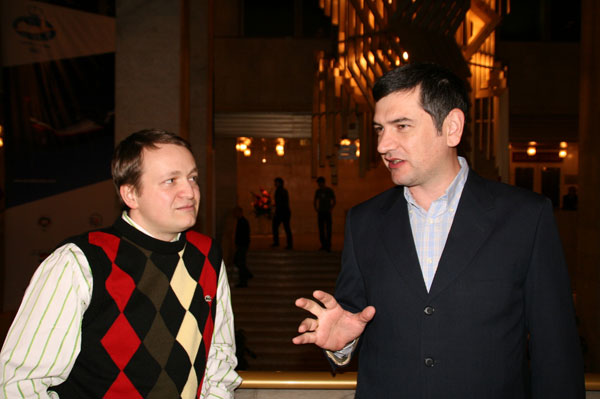
As a result, the first place was shared by 1. Victor Bologan, 2. Aleksej Alexandrov, 3. Alexei Fedorov, 4. Peter Svidler – 7 out of 9 points apiece, but it was the chess player of Moldavia who went to Dortmund!
Bologan – Granda Zuniga
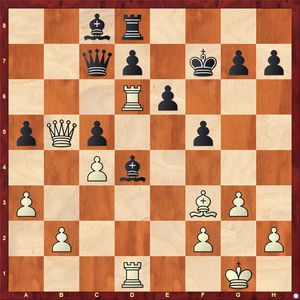
Does Black have any compensation for the sacrificed exchange? Viorel gives back his extra material in exchange for a ferocious attack.
28.R1:d4! cd 29.c5 e5?
29...h6 is tougher defence, but White should have no problems winning after: 30.Qc4 d3 (30...Bb7 31.B:b7 Q:b7 32.Q:d4+–) 31.b4 ab 32.ab d2 33.Qd4, eliminating Black's last active piece.
30.Qc4+ Ke7
30...Kf8 31.Bh5 g6 32.B:g6 hg 33.Rf6+ Kg7 34.Qf7+ Kh8 35.R:g6 is an immediate disaster for Black. However, following the prosaic
31.Qd5 Re8 32.Q:e5+ the player of Peru resigned in this defenceless for Black situation.

2004. Records, records and more records!
At the third festival, representatives of the Guinness Book of Records registered a record of 650 participants from 40 countries and 165 grandmasters! The tournament was opened with great fanfares by real legends – Anatoly Karpov, Boris Spassky, Vasily Smyslov and Viktor Korchnoi! Mikhail Tal's first wife Sally and their son Georgy were also present.
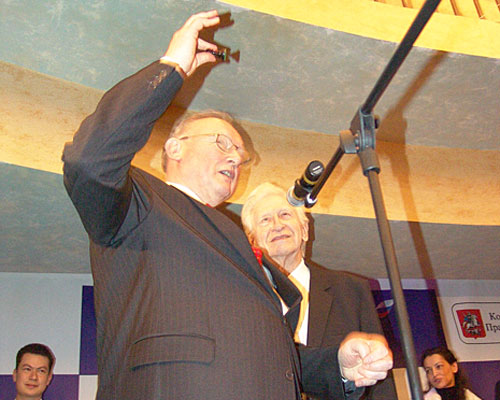
The official tournament website was created with a live game broadcast. However, it didn't work perfectly. They had already banned the use of cell phones. Thus, Ashot Nadanyan got a zero for making a phone call. In those days, the rules were pretty lenient: talking on the phone over the board was a zero, but walking out into the hallway, turning on the phone, making or answering a call was allowed!
A 13-year-old Magnus Carlsen made a phenomenal impression at the tournament, forcing strong grandmasters to resign one after another and making the coveted title norm. Alexei Gorbatov of Moscow said our loud for the entire playhall to hear, "This is our future Fischer!" His prediction proved right.
Alexander Zhukov, a political heavyweight and passionate chess fan, became President of the Russian Chess Federation, and Alexander Bakh was elected its Executive Director, which further strengthened the festival status.
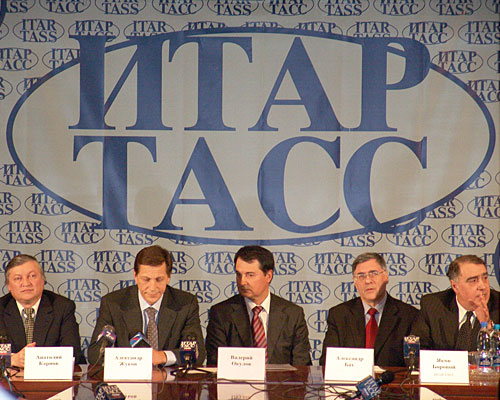
Tournament B was won by Dzhakay Dzhakaev, a future grandmaster, now president of the Chess Federation of the Republic of Dagestan. Shining in competition C was Alexander Potapov from the Stavropol Krai - the coach of Alexander Lastin, Elena Tomilova and Denis Eraschenkov (not to be confused with the Potapov dynasty from the Yamalo-Nenets Autonomous Okrug!)
An important factor was the introduction of the main characteristic coefficient of Aeroflot tournaments - the number of games played as Black. It was quite noteworthy that in the decisive games of the main tournament it was second players who dominated. Many players to whom fate sent more white colors than black admitted that the stress of competing for huge prizes kept them from sleeping before the final round – after all, a draw did not suit them at all. And Igor Khenkin, a very tough and mega-reliable grandmaster, suddenly attacked Sergei Rublevsky in the decisive game, and a successful counterattack made the Russian champion and senior coach of the women's national team the tournament winner!
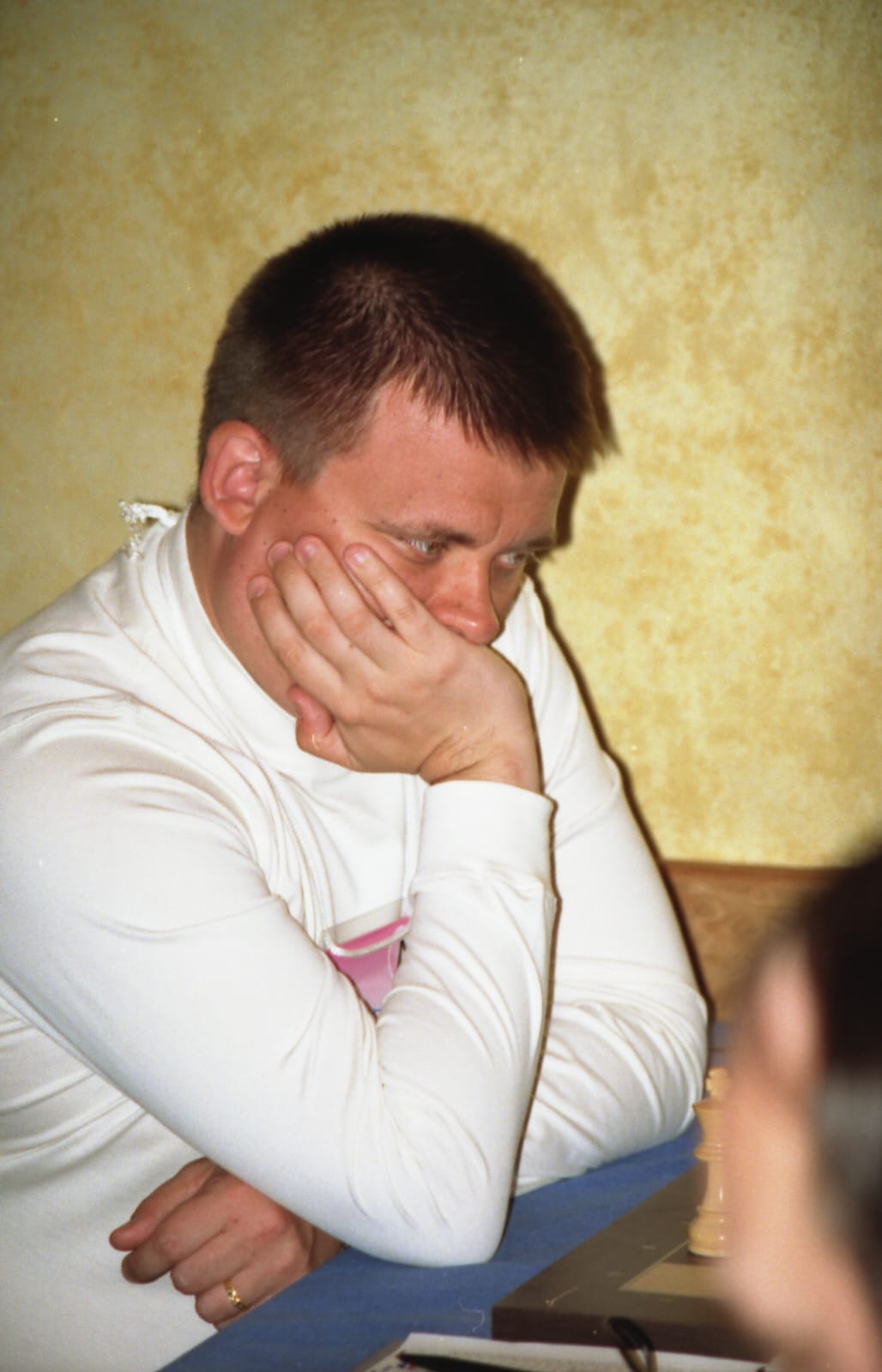
Khenkin – Rublevsky
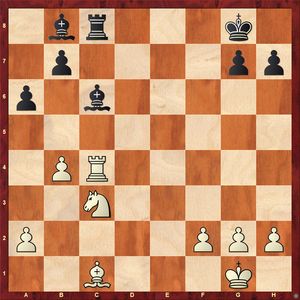
White has an extra pawn, but faces a problem in coordinating the pieces, which is highlighted by the following move.
29...b5! 30.Rd4?
White could have stayed in the game only with the engine move 30.Rh4! Be5 31.Ne2, and White keeps his position together. E.g. 31…Bb7 32.Rh5! Bd6 33.a3 Rc2 34.Kf1.
30...Be5 31.Be3
31.Rd3 fails to 31...Be4, and White sustains material losses.
31...B:d4 32.B:d4 Rd8 33.Be5 Rd2 34.f3 Rb2 35.Bd6
Khenkin has no chance to build a fortress because of the a-pawn: 35.a3 Rb3.
35...Rc2 36.Be5 a5
The upset German GM of the Russian origin resigned without giving a try to his last practical chance: 37.a3 a4 38.Kf1 Rb2 39.Ne2 Ra2 40.Nc1 Rc2 (40...R:a3? is premature due to 41.Ke2 Bd5 42.Bb2) 41.Nd3 Bd5!, and Black wins anyway.
Rublevsky had lost to one of his main competitors, Valery Filippov of Kemerovo, a few days earlier. However, he went on to bounce back by finishing with 3 out of 3! Final tournament standings: 1. Sergey Rublevsky, 2. Rafael Vaganian, 3. Valery Filippov – 7 out of 9 points. It is of interest that Rublevsky and 52-year-old Vaganian were even born on the same day – October 15, but 23 years apart!
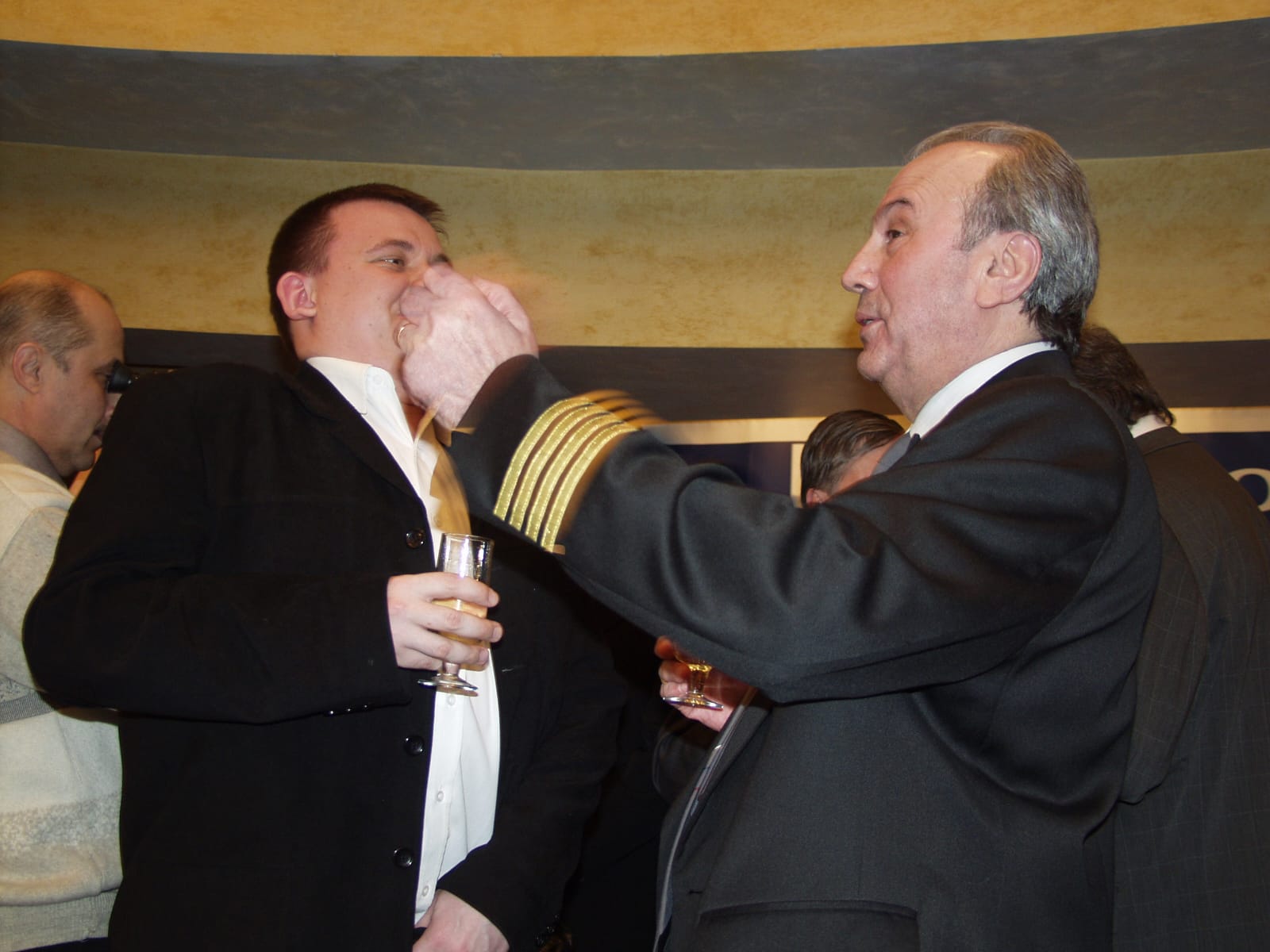
The leading Filippov, whose battles with fate and blackjack at foreign open tournaments were wide-known, missed his chance at the finish line. Frustrated, instead of visiting solemn ceremonies, he headed straight to the casino, which then were many in the vicinity of "Russiya" and throughout Moscow. Unfortunately, it didn't take long for this most talented of players to switch entirely to the game of cards. Fortunately, casinos in our state are now only allowed to operate in specially designated gaming zones.
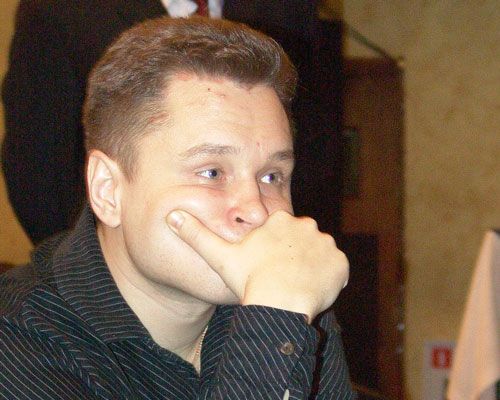
Many players' dropping out at the home stretch on having lost their chances to win prizes was a real fly in the ointment. The organizers did not like a bit - the opponents of "refuseniks" lost their chances to make norms and the like. Even if they weren't included in the drawing of lots, it didn't look very appealing. For example, the noble Bologan wrote an explanatory note, and some of his colleagues simply did not inform the organizers and did not come to the game at all, explaining that they had come without being reimbursed for any expenses, that they had paid a considerable fee, and therefore could leave as they pleased.
The situation was a hot topic of discussion for a long time, and the future editor-in-chief of the Central Russian chess magazine, Mark Glukhovsky, even devoted a large article to it in "64" magazine.
2005. How to promote chess to TV?
The prize pool for the next Aero was increased to $175,000, with $30.000 being the first prize. The list of participants was now approaching 700, so the tournaments division by rating was slightly modified into A1, A2, B and C. Special large prizes were established for the leading female chess players. The A2 tournament was open to chess players with a rating below 2550 – now talented youngsters and grandmasters of a lower level could earn a lot of money without having to compete with the elite.
There were also disturbing moments: after a series of terrorist attacks in 2004, a metal detector frame was installed in front of the entrance. Huge crowds is a point of alarm, extra security measures won't hurt! However, the most remarkable fact was that the Aeroflot Open began to coexist with a new large festival "Moscow Open", which attracted even more guests to the capital city. The momentum of the competitions became truly cosmic, and Russian chess gradually begins to be dominated by young athletes who grew up at these tournaments! Already in 2005 the game of young Ian Nepomniachtchi made a great impression.
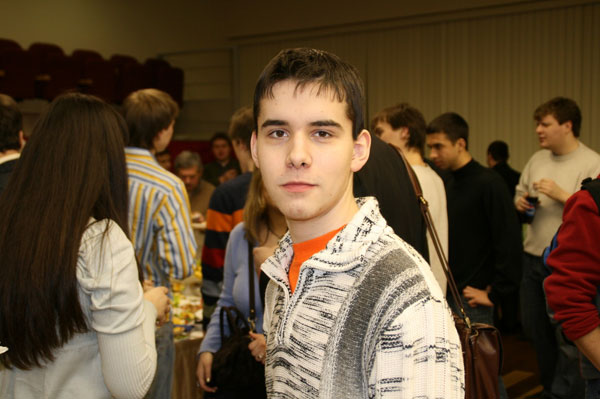
The friendly Aeroflot team worked like clockwork, even though there were not many of them: Natalia and Andrey Shustaevs, Mikhail Arkhangelsky, IT specialist Alexander Skopovsky, and accountant Maria Vlasova.

In the press center, its permanent head, the classic of national chess journalism, the long-time editor-in-chief of "64" Alexander Roshal (1936-2007) and Sergey Abramov set up the sale of literature, book novelties and fashionable ChessAssistant products of that time. Energetic and a treasure trove of all sorts of stories - who knew back then that Alexander Roshal had very little time left to live?
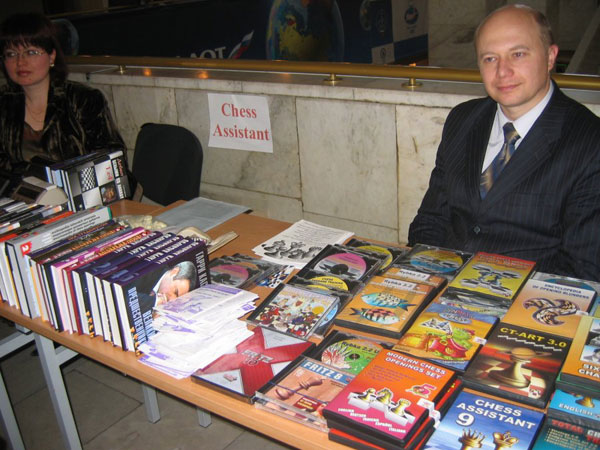
The Tseshkovsky – Sasikiran game ended remarkably. Both players thought they had lost because they had not made 40 moves, thus exceeding the time limit on the very peculiar electronic clock used at the time (the dial of the infamous "Phileon" would not stop counting time if one of the players exceeded the time limit, and could easily show zeros on both sides of the clock). Based on Tseshkovsky's words, the arbiter awarded him a zero. However, the next day the noble Hindu managed to prove (who would do such a thing today?) that the time had run out exactly on his clock. As a result, the outcome of the game was changed in favor of the two-time USSR champion.
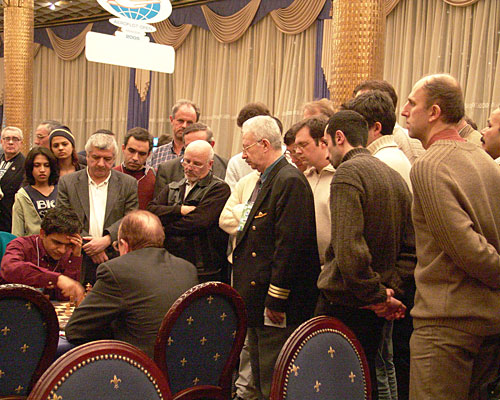
The tournament was brilliantly played by Emil Sutovsky, the future head of AСP and later FIDE General Director, and Andrei Kharlov (1968-2014), a wonderful man and grandmaster who died prematurely of a heart attack. A stellar group of players led by Vasyl Ivanchuk was chasing them.
In an over-the-board game, Sutovsky lost to Ivanchuk due to wild complications, but then had a good finish, defeating Sergey Volkov in the deciding game. Thanks to the "black" coefficient, the Israeli grandmaster becomes first, as Ivanchuk failed to defeat the stubborn Etienne Bacrot.

Volkov – Sutovsky
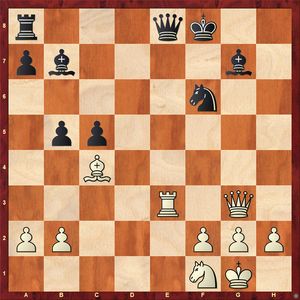
Is White's attack dangerous? No, Black's next move allows for the exchange of queens. This proves that Black's piece is superior to White's pawns.
28...Qb8! 29.B:b5
The tactical trick 29.Re7!? fails to 29...Q:g3 30.Rf7+ Kg8 31.R:b7+ bc 32.N:g3 Re8 – and Black should prevail because of the exposed white king.
29...Q:g3 30.N:g3 Ng4 31.Rb3
31.Re2 Rd8 is hopeless, so Volkov is looking for some practical chances.
31...Bd5 32.Rd3 Bd4 33.Rd2
The black bishop cannot be touched due to the fork after 33.Ne2 B:f2+ 34.Kf1 Bh4.
33...B:a2 34.Nf5 B:f2+! 35.R:f2
White is in bad shape after 35.Kf1 Be3 36.N:e3 N:e3+ 37.Kf2 Ng4+ 38.Kg3 Rb8. However, even if the text leaves him only down the exchange, he drops the most important b2-pawn.
35...N:f2 36.K:f2 Rb8 37.Bc6 Rb6 38.Bf3 R:b2+
The rest is simple.
39.Ke3 a5 40.Kd3 Bb1+ 41.Kc3 Rc2+ 42.Kb3 c4+, and Sutovsky became the tournament champion.
Kharlov did not survive the final test, although he was in the lead going into the final round. The thing is that one of the symbols of the tournament, Grandmaster Vladislav Tkachev (France), was on duty every day at the bar near the playing hall, telling his colleagues and acquaintances, and often ordinary people, amazing stories about the advantages and appeal of the 1-minute bullet, and the fact that chess had to speed up to make it on TV, and also about how chess players go mad and die in poverty, and much, much more of the kind. Unfortunately, on the day of his triumph, Andrei Kharlov could not pass such an amazing, intelligent and talented storyteller, and so he came to the next round in less than his best shape, failing to defend the worst position against Vladimir Akopian.

Final tournament standings: 1. Emil Sutovsky, 2. Andrei Kharlov, 3. Vasyl Ivanchuk, 4. Alexander Motylev, 5. Vladimir Akopian – with 6.5 points.
Arsen Yegiazaryan won the A2 tournament, Elmir Guseynov won the B tournament, but it was the C tournament that was the focus of attention.
According to the new rules, chess players with a rating below 2200 should play in the C tournament, and those with a rating from 2200 to 2399 in the B tournament.
A strong young chess player, Vitaly Rodchenkov, was the first to finish. Observers pointed out that Vitaly had managed the "Bayrachny's trick": in the shortest time he had ditched his rating from 2417 to 2196 in order to qualify for the coveted tournament.
Unfortunately, the fight for the main prize in tournament C (and, let's admit it, in tournament B as well) began to take on a somewhat unhealthy forms, as renowned chess players sometimes got rid of their excess rating points in order to gain access. The organizing committee regularly received complaints that players from sections A and A1 were giving tips to those who were candidates to win the event, and later even players with a dubious reputation in terms of using computer tips began to appear at the start. One such player was removed from the event after a search revealed a cell phone that the player refused to turn on (to clarify whether the smartphone had a chess program installed), although the fact of cheating could not be proven.
2006. New hotel, hew era
After the closure of the Rossiya Hotel, the tournament had to move to the Izmailovo Complex, which is comparable in size. There were some challenges in the way of the event: everything in the Gamma and Delta buildings had been booked for the coming year, and only Alexander Zhukov's personal intervention helped to make a hall available for the chess players.
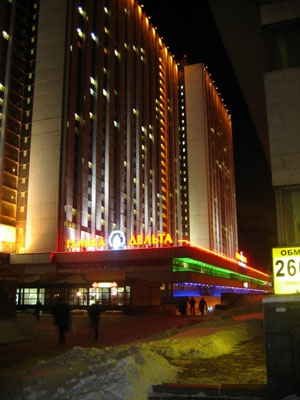
But there is definitely something to say about Izmailovo (considering that the National Children's Championship was held in the Alpha building in 2023)! The traditional opening and closing ceremonies with an endless supply of champagne are very popular here. The number of refrigerators for the participants was increased to 7. The supply for each fridge was replenished twice a day with 210 containers of soft drinks. However, the arbiters' problems were compounded by the fact that empty bottles kept falling off the tables – the strict rule that drinks could only be placed under the table had yet to be cultivated among the arbiters.
Both the young people and the legends of the Soviet years came to the start of the event. For example, the tournament was attended by 87-year-old Vera Tikhomirova (1918-2008), a longtime patron of Russian chess in the Soviet era and a champion of the RSFSR, who admitted that she had not been over the board for several decades, but it was impossible to resist such a tournament under such conditions!
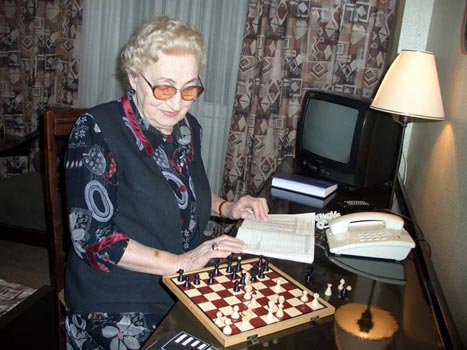
The participants of the main tournament were delighted by the extravagant outfits of Anna Sharevich, the grandmaster from Brest, the champion of Belarus.
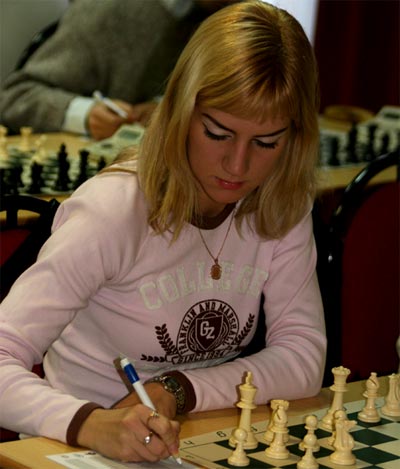
It was not for nothing that the winner of the A1 tournament Baadur Jobava (Georgia), in an interview with the famous journalist Marina Makarycheva for one of the central TV channels, said that the key to success is almost always beautiful girls and wine! However, he immediately clarified that he had recently suffered from a severe form of Botkin's disease. So, alcohol was not on his menu for a long time to come yet, and hence such an excellent result!
The decisive victory of the triumphant was achieved as Black in the final round.
Malakhov – Jobava

22.Re2?
This is a terrible oversight. Instead, 22.Rf2! keeps the game pretty much alive.
22...Nc3! 23.bc Qg1+ 24.Kd2 0–0–0+ 25.Qd4 R:d4+ 26.cd Q:d4+, and Malakhov's defenses collapsed, despite his best efforts to hold his position together.
The A2 event had as many as 12 people in the share of first place: David Arutinian became its winner. The presence of Chinese and Indian chess players at the Aeroflot tournaments was striking. It had become apparent the year before, but the trend became more established with each subsequent event. In the B-competition the best was David Petrosian.

The Year 2007. Terminators among us
During the year, Alexander Zhukov was re-elected for a second term, and his deputy was Arkady Dvorkovich, one of the country's leading economists, whose political career was on the rise.
Going into the start, Aero had about 600 participants and the prize money amounting to 195 thousand dollars. However, the first scandal involving the possibility of computer-generated tips came to light in this era of technological breakthroughs.
Young GM Stanislav Novikov made a sensational start by defeating Alexey Korotylev, Vladimir Belov, Alexander Riazantsev, and Evgeny Tomashevsky. And then a bomb exploded: First, Stanislav unexpectedly played the last three rounds without his games being broadcast live and performed badly, and then his defeated partners, supported by Ian Nepomniachtchi, came up with accusations against him. At that moment the top program was still "Fritz". It was used to check for exact matches with Novikov's moves.
In his turn, Novikov challenged all his opponents to a match, but the story did not evolve in this direction (although matches were looked forward to), remaining as history on guest pages, forums and in the minds of chess amateurs. Novikov received much support during the scandal. The opposite was also true. For a long time, the public was divided into two camps with no peace in sight. In any case, today the native of Moscow is a respected chess player who continues to compete successfully in tournaments and to coach talented children.
After all, it often happens that a person plays much worse without the live broadcast than with it, as it happened at the 2023 Ugra Cup with Alexei Smirnov: the famous visually impaired player won all the games with the broadcast against grandmasters and masters, while he lost with the broadcast turned off.
However, in the ensuing chaos, Evgeny Alekseev, the 2006 Russian champion, had the strongest nerves. He won first prize!
Alekseev – Sargissian

29…h5
The black king comes under terrible attack as a result of this erratic move. The cool 29...Кh7! keeps 30.Q:a6? in check by 30...Ra8, while Black is in good shape after 30.Rad1 Ng5 31.Qe3 Qf6.
30.gh N:h5 31.Qe3 g6 32.Rh2! Qf6
32...gf 33.R:h5 is just too bad, but White's pieces get to the black king anyway.
33.Nh6+ Kf8 34.Ng4 Qe6
34...Qg7 fails immediately to 35.Qc5+.
35.Qh6+ Ke7 36.Qg5+ Kf8 37.Qh6+ Ke7 38.Qg5+ Kf8
After repeating moves in the time trouble, as the classics teach, Alekseev switched to decisive action.
39.Rd1! b4
White wins nicely after 39...Bb7 40.Bb3! Q:b3 41.Rd7 Re6 42.R:h5! gh 43.Q:h5. The game ended prosaically as Sargissian tried to avoid this line.
40.Qh6+ Ke7 41.Qg5+ Kf8 42.cb Rb8 43.Qh6+ Ke7 44.Qe3 Red8
The pawn on b4 is not to be touched. Black is in a pretty bad position and his pawns are about to drop.
45.Qc5+ Ke8 46.N:e5 Bb5 47.Rc1 Qd6 48.Bb3 Black resigns.
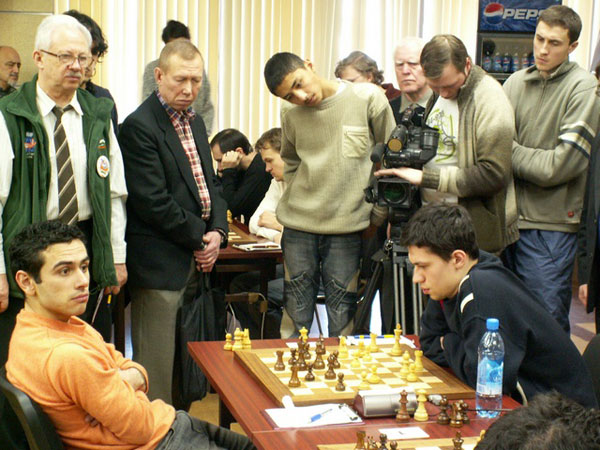
In the A2 tournament, a special prize was awarded to the young Pole Arkady Lenart, who finished second. They didn't want to place him in the second group because of insufficient rating, and in the end Lenart almost won!
The side event was won by the promising Kazan chess player Marat Askarov with a score of 7.5 out of 9. He came up with a detailed article about his success in the 64 magazine, and then... one of the biggest scandals in Russian chess broke out.
Even before the final of the Russian Cup in Serpukhov (in the fall of the year 2007), the possibility of cheating was one of the most popular topics of discussion - incidents were popping up like mushrooms. The Cup Final enjoyed excellent conditions: beautiful rooms, a comfortable playing hall, a large prize fund, a per diem that allowed you to take five daily meals instead of three.
But once again, it was Askarov who was in the focus of attention at the tournament held near Moscow. In the qualifying round Marat twice upset Evgeny Vorobiov, and in the round of 32 he outplayed Vladimir Potkin, who was in top form and went on to win the European Championship later. Passions ran high, and then the chief arbiter Mikhail Kryukov, in order to avoid further escalation of the conflict, moved the games of the round of sixteen to an isolated library hall, where the possibility of transferring moves was minimized. As a result, the match between Lysyi and Askarov ended with a victory for Igor Lysyj.
The defeated players would not be appeased, and on November 25, 2007, a large article appeared on the RCF website in which the defeated Potkin and Vorobiev, as well as their sympathizers Andrei Deviatkin, Evgeniy Najer, Alexander Motylev, Sergei Grigoryants, Vladimir Dobrov, and Mikhail Kobalia, called for the Askarov case to be solved. By the fall of that year, the crown of the computer world belonged to Rybka. The natives of Moscow spotted that the suspect's games matched this particular module.
Askarov responded to the appeal "Don't laugh - check it out for yourself!" with a letter "Check it out for yourself - it's really funny!" Once again, the audience was divided. Some were hopeful, others yet were worried about the Kazan player's presence at the upcoming Aeroflot.
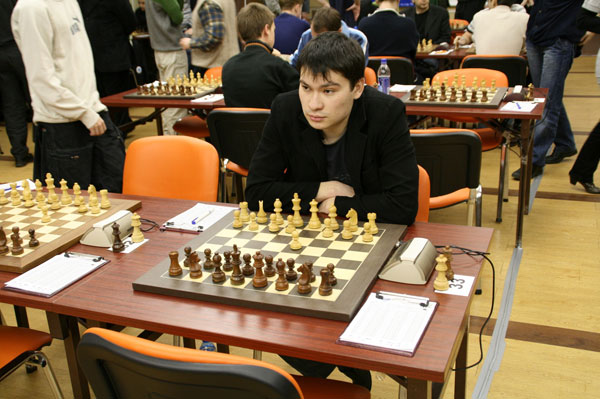
Coming back to the subject of the article, the C tournament of Aero-2007 was won by Gulmira Dauletova, and the B tournament was won by Vasif Durarbayli - both of them were to become famous grandmasters in the future.
The year 2008. No life without Aeroflot
There happened an incident in the fall of 2007 – Aero's chief artiber, Geurt Gijssen, broke his leg at the Tal Memorial. But the doctors worked a miracle. By February 2008, the elderly arbiter was back to normal! I don't know if Aeroflot-Open will do without me, but I do know that I will not do without Aeroflot-Open," Gijssen said in an interview.
Now the legendary arbiter is preparing to celebrate his 90th birthday, he has suffered a serious illness, but Gijssen is with us, and the main thing is that Aeroflot has been revived – the balance has been restored!
In the main tournament, the star of the Russian challenger for the title of World Champion has risen! Ian Nepomniachtchi won – at the closing ceremony he was presented with a newly-acquired grandmaster's diploma (at the age of 17 - Ian never chased records, but wanted to study chess above all) and a special prize from the sponsors.

And the article by the winner about his victory was published with a quote from a song by the one and only Vladimir Vysotsky, which is rather provocative in this situation:
"Call me an idiot,
but I'd fly Aeroflot!"

Le Quang Liem – Nepomniachtchi
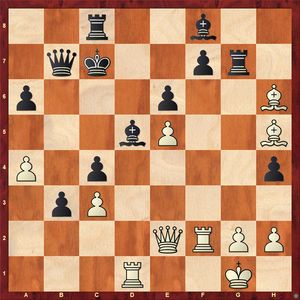
31...R:g2+!
This exchange begs to be sacrificed as now the black bishops dominate the board.
32.R:g2 B:h6 33.Rf2 Qb6 34.Kf1 Kb8 35.Bf3 Be3 36.Rg2
A Vietnamese player misses his opportunity: 36.a5! Qa7 37.B:d5.
36...b2
36...Bc5! is stronger. However, how tempting it is to put a passed pawn on b2 and to defend it with the bishop and to box in the rook.
37.Rb1 Bc1 38.Rf2?
White should not have refused from 38.Q:b2 B:b2 39.Rg:b2 Q:b2 40.R:b2+ Kc7 41.B:d5 e:d5 42.Rf2 – the chances of saving the game in the rook ending exist and may be quite decent.
38...Rg8
38...B:f3 39.Q:f3 Rd8 is more precise.
39.Qd1
39.R:b2 should have been preferred again, whereas after
39...B:f3 40.Q:f3 Rg5 it turned out that Black had a completely winning position, which Ian easily managed to convert.
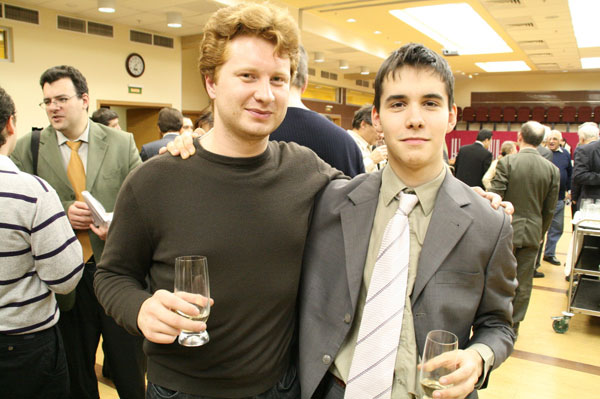
But it wasn't just the A Tournament that caught the crowd's attention. The side event did, too! This event was again won by Askarov. From the very beginning, Marat began to crush the competitors – and soon the participants filed a protest by signing a joint letter to the festival director Alexander Bakh. It was signed by many, demanding drastic measures to be taken.
At the finish line, the two-time Aero winner slowed down the pace and made short draws with Evgeny Shaposhnikov, the author of these lines, and a young Chinese player, but took the first place anyway. And soon, with all those "guilty or innocent" debates going on, he gave up his chess career.
By the way, the world crisis caused the reduction of the number of participants, the competitions were now held in categories A (2550+), B (from 2549 to 2200) and C (below 2199).
The winner of the C tournament was Askarov's friend Bulat Mirzanurov from Kazan. Years later, Bulat's (now famous Kazan coach) game against Daniil Yuffa at the 2014 Polugaevsky Memorial will become canonical for all fans of Benoni - even a decade later, the ever-advancing computer engines could not put to any analytical doubt the strongest moves that Mirzanurov produced on the Samara soil. The Rashid Nezhmetdinov Memorials saw Bulat and his friends generate many model games that were flawless from the most demanding point of view.
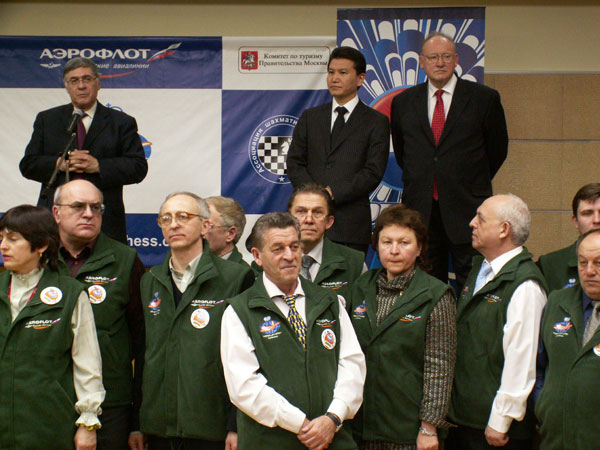
2009. If there's a pack of cigarettes in your pocket....
The global economic crisis continued. The number of open tournament participants decreased significantly. But after the tournament there was a great blitz qualification for the Tal Memorial. That was the world championship at that time. From now on the Aeroflot Blitz will be a traditional and well attended event. After all, the participants of the A1 and A2 tournaments, as well as the winners of the B and C tournaments, played there without having to pay the impressive 300 foreign currency units fee that all other players had to pay.
The first such competition was won by Sergey Karjakin, already one of the world's leading chess players and soon to fly the Russian flag.
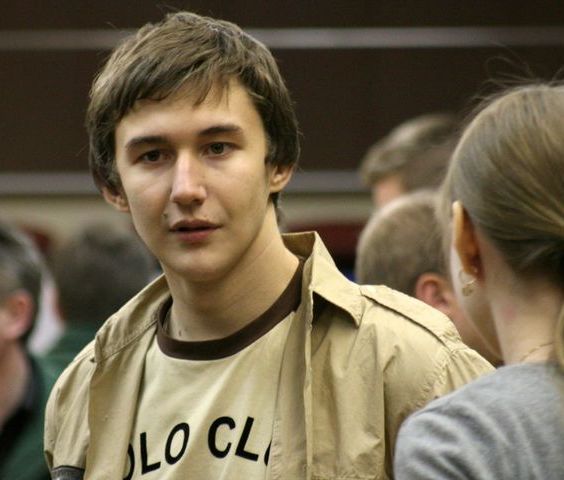
The winner of the side event was GM Alexander Danin, but the main event was not without suspense.
The scandal broke out over the sixth-round game, in which the rating favorite Shakhriyar Mamedyarov wend down to GM Igor Kurnosov (1985-2013), having walked into the opening novelty of the famous theorist and great Grunfeld defense specialist. A detailed review of this encounter can be found in the book Chelyabinsk Meteorite, dedicated to the memory of Kurnosov. As a sign of protest, the angry Azerbaijani even withdrew from the tournament. Mamedyarov put his suspicions forward in a letter to the head of the organizing committee. The letter soon found its way into the media.
"Dear Alexander Grigorievich! During the game, my opponent would leave the room after every move, grab his jacket, and go to the bathroom. After a suspicion of foul play on move 14, I offered a draw, but he refused. Eleven moves we played quickly, on the 12th move I made a move which misled my opponent. His next moves matched the first line of the world's strongest program, Rybka. This allowed him to win quickly. Due to a number of suspicions caused by non-standard behavior of my opponent Igor Kurnosov, I file a protest and refuse further participation in the tournament. My hope is that no such situations will ever take place in the future. Sincerely yours, GM Shahriyar Mamedyarov".
After the end of the game and Mamedyarov's statement, the tournament's chief arbiter, Geurt Gijssen, examined Kurnosov's pockets and found only a pack of cigarettes, a lighter and a pen. Unfortunately, up to the moment of Igor's tragic death (the leader of the Chelyabinsk chess team was hit by a car flying like a tornado. However, as is often the case with our justice, the fairest justice in the world, no one was ever punished) in 2013, the grandmasters never reconciled - both Kurnosov and Mamedyarov never forgot the incident and voiced their claims in absentia.
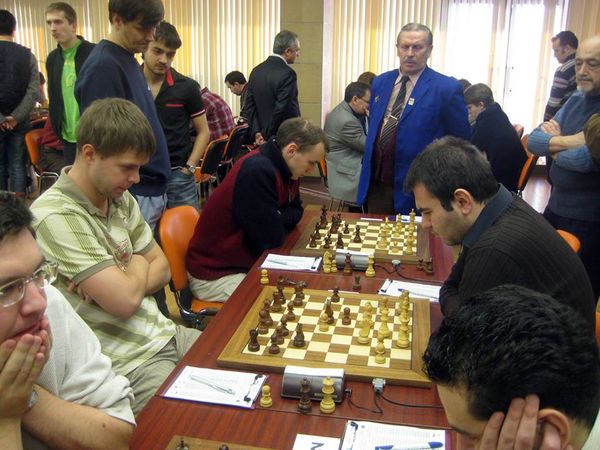
Kurnosov was in the lead, but could not retain it until the very end - the fate of the main prize was decided in the last round, when Etienne Bacrot defeated Arman Pashikian, who had defeated Igor Kurnosov earlier. The French grandmaster eventually overtook Alexander Moiseenko by better tiebreakers.
Pashikian – Bacrot
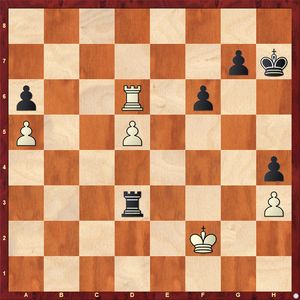
49.Ke2?
White cannot save the game after that. Arman might have seen no difference, but saving him was 49.R:a6! R:d5 50.Ra8 Rd3 51.Kg2 Rg3+ 52.Kh2 Ra3 53.a6 Ra2+ 54.Kh1 f5 55.Kg1. It is unclear how Black should improve his position. Fow example: 55…g5 (55...Kg6 56.Rh8 R:a6 57.R:h4 – it should be a draw with accurate play) 56.a7 f4 (56...g4 57.Rf8) 57.Kh1.
49...R:h3 50.R:a6 Rg3! 51.Rb6
The rook was cutting off the white king. It is not difficult to evaluate that Black wins after 51.Kf2 Rg5 52.d6 h3 53.d7 h2 54.d8Q h1Q.
51...h3 52.Kf2 h2
52...Rg2+ 53.Kf3 Ra2 was also possible, but Etienne gives White no chance whatsoever in connection with the king's activities.
53.Rb1 Ra3 54.Rd1 R:a5 55.Kg2 Ra2+ 56.Kh1 Kg6 57.d6 Ra8 58.K:h2 Rd8 59.Kg3 Kf5
Now all that is left is to mop up the last white pawn.
60.Kf3 Rd7 61.Rg1 Ke6 62.Ke4 g5 White resigns.
2010. Moscow comeback
Before the Moscow Open and the Aeroflot 2010, a major open tournament was held in Delhi, India, where the favorite was the strong Vietnamese grandmaster Le Quang Liem, who had already contested the highest places in Moscow.
In India, Liem was held to draws by hard-to-defeat Indian players (who among us has not been in such a situation?), and the author of this article, who shared the 1-3 places in this tournament, cheered up a very polite and well-mannered Oriental chess player with the following words: "It's not a big deal, you have made into the prize places, and you will prove yourself again in Moscow!" At that time, of course, I had no idea that the young man's performance at the Moscow Open and Aeroflot would cause such a sensation. Le Quang Liem excelled in both tournaments, adding as many as 40 points to his 2640!
At Aero, the prize fund this time was 180,000 Euros, and the winner of the main tournament was entitled to 21,000 Euros. There was also a blitz tournament, where the prize fund amounted to 40 thousand euros, and the victory was scored by yet another young chess titan – Frenchman Maxime Vachier-Lagrave.

Le Quang Liem snatched the top spot in Aero after a very tense final round battle against last year's winner, taking revenge for the events of two years ago.
Le Quang Liem – Nepomniachtchi

Once again, Nepomniachtchi sacrificed the exchange, but this time it was not so simple.
48...Rb4?
48...Rb2! 49.Ra6+ Kb4 50.R:g6 B:g6 51.K:g6 Kc4 52.f5 Rf2 53.f6 b4 54.f7 b3 was a study-like escape, in which Black is just in time with his counterplay. The rook has attacked a pawn, but interferes with own king after the intermediate check.
49.Ra6+! Kb3 50.R:g6 B:g6 51.K:g6
Unlike 2008, Le Quang Liem returns the exchange, and it proves a key to success!
51…R:f4
More stubborn is 51...Ka4, but in this case White wins with 52.Kg5! Rb1 53.f5 Rg1+ 54.K:h5 Rf1 55.Kg6 Rg1+ 56.Kh6 Rf1, and now the important check gives the king a safe heaven: 57.Re4+! b4 58.Kg5 Rg1+ 59.Kf4 Rf1+ 60.Ke5 Kb5 61.f6 b3 62.Re2 Kc4 63.Ke6 Kd3, and now the precise 64.Rg2! Kc3 65.f7 b2 66.R:b2 K:b2. White gave up his rook, but the way to win is 67.h5 Re1+ 68.Kf6 Rf1+ 69.Kg7 Rg1+ 70.Kf8 Rh1 71.h6! R:h6 72.Kg7, and there only remains to convert the queen vs rook advantage. The Russian had clear chances to save the game at this moment. However, the text leaves his king too far away.
52.R:b5+ Kc4 53.R:h5 Rg4+ 54.Kf5 Rg8
54...Rd4 55.Rh8 is of no help either.
55.Rg5 Rh8 56.h5 Kd5 57.Kg6+ Крe6 58.Kg7 Re8 59.h6 Re7+ 60.Kg6. The h-pawn marches forward. Therefore, Black resigned.
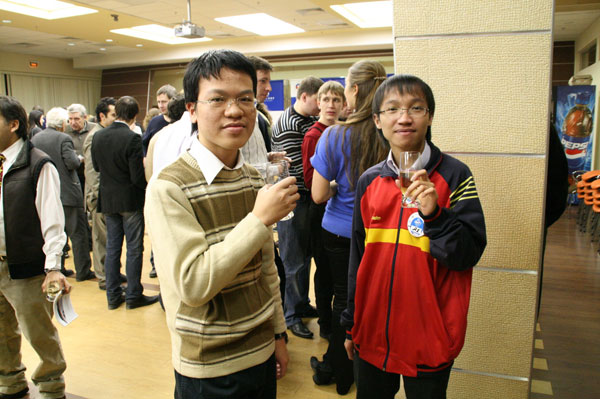
The main chess political event of 2010 was the joint crusade of the illustrious champions Kasparov and Karpov against FIDE President Kirsan Ilyumzhinov before the elections at the Olympiad in Khanty-Mansiysk, which inevitably led to upheavals in Russian chess as well.
Arkady Dvorkovich, the new head of the Chess Federation of Russia, has put together an effective team of managers, executives and specialists (a significant part of this team still works in the Federation) and also promised to substantially increase the budget of Russian chess, which had previously amounted to a relatively modest 100 million rubles per year.
It was the beginning of a new era in which Aeroflot would continue its powerful role as one of the leading tournaments in Russia.
To be continued.
The author would be grateful for any clarifications and additions to the text (e.g. in regard to the winners of the side tournaments) - thank you in advance!
Photo credit: Vladimir Barsky, Evgeny Atarov, Ilya Odessky, Pavel Lobach, Maria Fominykh, Chesspro.ru









